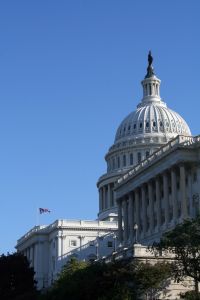 The U.S. Centers for Medicare & Medicaid Services (CMS) recently finalized a final rule to effectuate the federal government’s ability under the Affordable Care Act (ACA) to recover self-identified overpayments, applicable to Medicare Parts A and B. CMS’ implementing overpayment rule is the latest sword in the government’s formidable arsenal to combat fraud and abuse with regard to healthcare reimbursement under federal programs. Physicians and other healthcare businesses and suppliers should take heed, as they will be subject to considerable potential financial liability and professional risks for noncompliance with the new overpayment rules. Our Atlanta/Augusta business and healthcare law firm follows developments in healthcare fraud and abuse laws.
The U.S. Centers for Medicare & Medicaid Services (CMS) recently finalized a final rule to effectuate the federal government’s ability under the Affordable Care Act (ACA) to recover self-identified overpayments, applicable to Medicare Parts A and B. CMS’ implementing overpayment rule is the latest sword in the government’s formidable arsenal to combat fraud and abuse with regard to healthcare reimbursement under federal programs. Physicians and other healthcare businesses and suppliers should take heed, as they will be subject to considerable potential financial liability and professional risks for noncompliance with the new overpayment rules. Our Atlanta/Augusta business and healthcare law firm follows developments in healthcare fraud and abuse laws.
New Teeth for ACA Fraud and Abuse Provisions
Section 6402 of the ACA requires physicians, healthcare providers and suppliers, managed care plans, and other groups to self-report and refund to the government any Medicare or Medicaid overpayments by the latter of 60 days from the date the overpayment is identified or the date any corresponding cost report is due. The failure to do so subjects the offending party to civil monetary penalties and exclusion from all federal healthcare reimbursement programs. Additionally, according to the new overpayment rules, the retained overpayment is an “obligation” under the False Claims Act (FCA), subjecting the violator to all the financial consequences that attend FCA liability. The new rule is part of CMS’ final regulations to implement the ACA’s requirements with regard to overpayments as concerns Medicare Part A and B.
Under the new rule and the ACA, providers are required to identify any known overpayments. This obligation includes a duty to quantify the amount of the overpayment. Providers and suppliers must, therefore, “inquire further to determine whether there are more overpayments on the same issue before reporting and returning the overpaid claims.” 81 Fed. Reg. at 7663. So, when a provider learns of an overpayment, or by reasonable diligence should have, a duty to investigate and determine the extent of such overpayments is triggered. Ascertaining the number/amount of the overpayments can be done, per the new rule, by statistical sampling and extrapolation or other appropriate methodologies. As some good news to affected persons, under the new rule the lookback period is six years (not ten, as CMS originally intended); hence the obligation is to report and return overpayments within six years of the date received.
The new rule broadly defines “overpayment” to include “any funds . . . received or retained under [the Social Security Act] to which the person, after applicable reconciliation, is not entitled. . . .” 42 C.F.R. § 401.303. Importantly, “overpayment” includes any claim for reimbursement that violates physician self-referral law, such as Stark Law or the federal Anti-kickback Statute or for services furnished by a person excluded from the Medicare Program.
Tough Adverse Consequences for Non-compliance
The consequences for violations of the new rule are not insignificant, and include: (a) substantial civil monetary penalties; (b) exclusion from federal health care programs; and (c) potential FCA liability. For example, under the FCA, sanctions include $5,500 to $11,000 for each false claim, plus treble damages. For affected physicians, in addition to such severe (potentially crippling) financial penalties, the exclusion from federal healthcare programs can be a bar to many (if not most) employment possibilities. CMS provides guidelines for handling overpayment issues.
Source: CMS Final Rule
*Disclaimer: Thoughts shared here do not constitute legal advice.
 Total Health Law Blog
Total Health Law Blog

